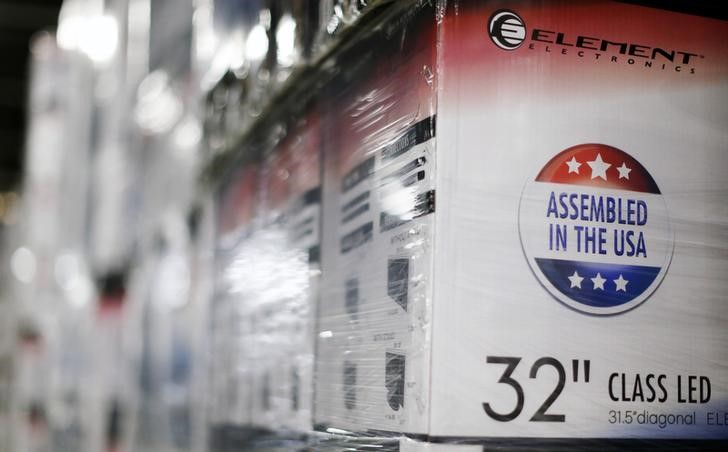WASHINGTON (Reuters) - New orders for key U.S.-made capital goods rose slightly more than expected in July and shipments surged, pointing to an acceleration in business spending early in the third quarter.
The Commerce Department said on Friday non-defense capital goods orders excluding aircraft, a closely watched proxy for business spending plans, increased 0.4 percent last month after being unchanged in June.
Economists polled by Reuters had forecast these so-called core capital goods orders rising 0.3 percent last month. They were up 3.3 percent from a year ago.
Shipments of core capital goods jumped 1.0 percent after an upwardly revised 0.6 percent increase in June. Core capital goods shipments are used to calculate equipment spending in the government's gross domestic product measurement. They were previously reported to have gained 0.1 percent in June.
Businesses are boosting spending despite uncertainty over the prospect of tax cuts. President Donald Trump and his fellow Republicans in Congress have said they want to lower both corporate and individual taxes as part of a comprehensive tax restructuring, but few details have emerged.
With lawmakers soon to be preoccupied with legislation to raise the country's debt ceiling and keep the government funded beyond September, it is unclear how quickly the tax changes will be put on the legislative agenda.
Business spending on equipment added 0.44 percentage point to the economy's 2.6 percent annualized growth pace in the second quarter, the most in nearly two years. It has been buoyed by the energy sector, where oil and gas drilling has rebounded after declining in the wake of the collapse in crude oil prices.
That is helping to offset some of the drag on manufacturing from declining motor vehicle production. Manufacturing accounts for about 12 percent of the U.S. economy. Last month, orders for machinery fell 1.4 percent, the biggest drop since May 2016, after rising 0.6 percent in June.
Overall orders for durable goods, items ranging from toasters to aircraft meant to last three years or more, tumbled 6.8 percent last month as bookings for transportation equipment plunged 19 percent. The drop in durable goods orders was the biggest since August 2014 and followed a 6.4 percent increase in June.
Boeing (N:BA) has reported on its website that it received only 22 aircraft orders in July, sharply down from 184 in the prior month.
Orders for motor vehicles and parts fell 1.2 percent in July, the biggest drop since May 2016, after decreasing 0.7 percent in June. Auto sales peaked in December 2016 and slowing demand has led to three consecutive monthly declines in motor vehicle production.
